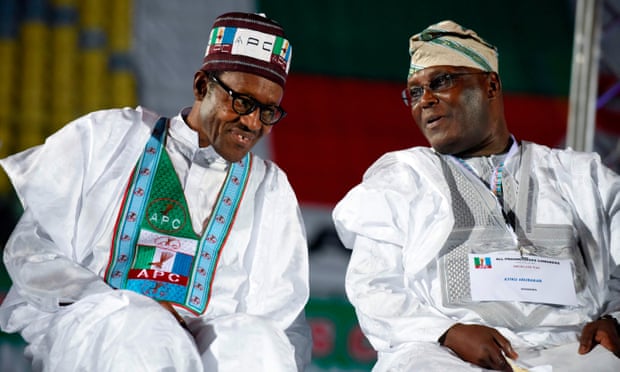
Nigeria’s 84 million voters will go to the polls next weekend to give their verdict on Muhammadu Buhari. The country is Africa’s most populous, and by some measures has the largest economy on the continent. Nigeria celebrated Mr Buhari’s election in 2015 as not only a resounding rejection of the unpopular Goodluck Jonathan but also the first democratic transition since the return of civilian rule in 1999.
Unfortunately, the highlight of Mr Buhari’s presidency appears to have been the gaining of it. The economy struggles, and his pledges to curb rampant corruption have been applied to political opponents. Insecurity remains a pressing issue: notably, Boko Haram appears to be resurging despite the government’s repeated assurances that it has beaten the extremist group, and a spreading herder-farmer conflict has killed thousands. The president’s extended absence overseas, for medical treatment, prompted such persistent rumours of his death and replacement by a body double that he felt obliged to tell voters: “It’s the real me, I assure you.”
A country with a median age of 18 faces, it would appear, an uninspiring choice between two septuagenarian political veterans. The slate of candidates is lengthy – helped by a 2018 reform which lowered the age limit for presidential candidates to 35 from 40. But the only serious rival to Mr Buhari and his All Progressives Congress party is the business tycoon and former vice-president Atiku Abubakar of the People’s Democratic party. Both men are Fulani Muslims from the north, and have chosen running mates from the south. Mr Buhari headed the military junta in the 1980s and now describes himself as a “converted democrat”. But Mr Abubakar has won the backing of an influential bloc including former military heads of state. Supporters portray him as an energetic contrast to the ineffective incumbent; opponents highlight corruption allegations, including a 2010 US Senate report which said that he and one of his wives had wired $40m of “suspect funds” into American accounts. Mr Abubakar denies the claims.
The concern is that this contest will not live up to 2015’s standard. Suspicion has been heightened by Mr Buhari’s suspension of the chief justice, who could preside in an election dispute. The judge will face trial on charges of failing to declare his assets – a first in the country. There are also complaints of intimidation and vote-buying on both sides. Irregularities would not have to be as blatant as in 2007 – when results were reportedly posted before polling stations opened – to provoke fury. Civic groups warn that irresponsible and inflammatory rhetoric risks violence: deadly post-election unrest is a persistent problem which killed 800 in 2011. Some fear a fresh bout could trigger a wider destabilisation. State-level elections which follow could be even more critical, given the lucrative rewards of regional office.
The perils are real if the result is close. If Mr Abubakar edges ahead, much will depend on whether Mr Buhari is as willing to go as his predecessor was, in turn influenced by the calculations of political “godfathers” who shifted to the challenger last time. Though diplomats are stressing the need for fair elections, there has been little pressure at higher levels. The US has been increasingly interested in counterterrorism and trade priorities, and less so in governance and democracy. The grudging acceptance of a dubious and contested election result in the Democratic Republic of the Congo has taken the sting out of international protests. The regional group Ecowas has proved to be one of the more assertive blocs in Africa, but is dominated by Nigeria.
Yet there is hope as well as anxiety. The last election set an important precedent, and raised Nigerian voters’ expectations. One columnist noted that the media is “seriously engaging with candidates outside the two largest political parties”. In the long run, Nigerians deserve a better politics than the one revealed by this unedifying contest. For now, they deserve a fair and safe election and results that are respected by all parties. Every effort should be made to support that process, and the civil society groups which promote peace and democracy.
END

Be the first to comment